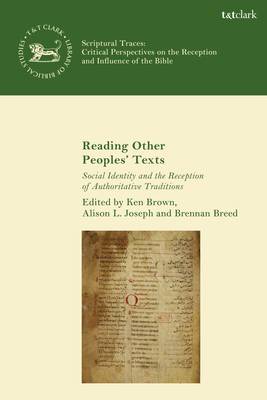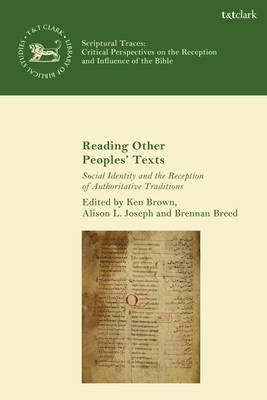
Bedankt voor het vertrouwen het afgelopen jaar! Om jou te bedanken bieden we GRATIS verzending (in België) aan op alles gedurende de hele maand januari.
- Afhalen na 1 uur in een winkel met voorraad
- In januari gratis thuislevering in België
- Ruim aanbod met 7 miljoen producten
Bedankt voor het vertrouwen het afgelopen jaar! Om jou te bedanken bieden we GRATIS verzending (in België) aan op alles gedurende de hele maand januari.
- Afhalen na 1 uur in een winkel met voorraad
- In januari gratis thuislevering in België
- Ruim aanbod met 7 miljoen producten
Zoeken
Reading Other Peoples' Texts
Social Identity and the Reception of Authoritative Traditions
€ 228,95
+ 457 punten
Omschrijving
This volume draws together eleven essays by scholars of the Hebrew Bible, New Testament, Greco-Roman religion and early Judaism, to address the ways that conceptions of identity and otherness shape the interpretation of biblical and other religiously authoritative texts.
The contributions explore how interpreters of scriptural texts regularly assume or assert an identification between their own communities and those described in the text, while ignoring the cultural, social, and religious differences between themselves and the text's earliest audiences. Comparing a range of examples, these essays address varying ways in which social identity has shaped the historical contexts, implied audiences, rhetorical shaping, redactional development, literary appropriation, and reception history of particular texts over time. Together, they open up new avenues for studying the relations between social identity, scriptural interpretation, and religious authority.
The contributions explore how interpreters of scriptural texts regularly assume or assert an identification between their own communities and those described in the text, while ignoring the cultural, social, and religious differences between themselves and the text's earliest audiences. Comparing a range of examples, these essays address varying ways in which social identity has shaped the historical contexts, implied audiences, rhetorical shaping, redactional development, literary appropriation, and reception history of particular texts over time. Together, they open up new avenues for studying the relations between social identity, scriptural interpretation, and religious authority.
Specificaties
Betrokkenen
- Uitgeverij:
Inhoud
- Aantal bladzijden:
- 304
- Taal:
- Engels
- Reeks:
Eigenschappen
- Productcode (EAN):
- 9780567687333
- Verschijningsdatum:
- 14/05/2020
- Uitvoering:
- Hardcover
- Formaat:
- Genaaid
- Afmetingen:
- 157 mm x 239 mm
- Gewicht:
- 612 g

Alleen bij Standaard Boekhandel
+ 457 punten op je klantenkaart van Standaard Boekhandel
Beoordelingen
We publiceren alleen reviews die voldoen aan de voorwaarden voor reviews. Bekijk onze voorwaarden voor reviews.








